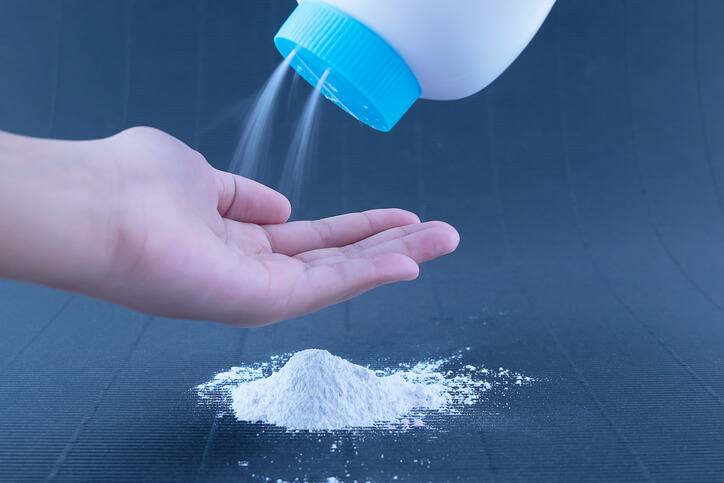In complex litigation against international drug companies, allegations of negligence and ignorance are common. But blatant evidence tampering and failing to warn the public about potentially deadly side effects is another matter entirely. Johnson & Johnson knew about the link between perineal talcum powder use and ovarian cancer 40 years ago. And recent court testimony shows J&J tried to hide that talc and cancer link from the public in order to protect their profits.
With over 10,000 talc and cancer lawsuits pending against J&J, new evidence implicating company execs is coming to light. Every jury trial to date unearthed additional proof that J&J spent millions on lobbying groups to influence talc regulation. These lobbying groups aimed to suppress any negative publicity about talc and cancer that could hurt J&J’s bottom line. Now, it appears they took a very scientific and political approach in trying to achieve that goal.
Related: Talc-Free Makeup Brands: We List Our Top 10 Favorites
Lobbying Group Sponsors Studies Trying to Disprove Talc and Cancer Link
In 1993, Johnson & Johnson formed a lobbying group with its talc supplier, Luzenac (previously known as Imerys Talc). The lobbyists called themselves the “Talc Interested Party Task Force” (TIPTF). The group had one specific goal: Publish data from corporate-sponsored studies that contradicted other scientific research linking talc and cancer. In other words, bury or discredit any research showing an association between perineal talc and cancer.
J&J and Imerys completely controlled every aspect of this lobbyist group. They pooled resources to defend talc and prevent even more burdensome regulation. In addition, they hired scientists to conduct biased talc safety studies. TIPTF knowingly released false information to the public denying any link between talc and cancer. Deep pockets helped them politically influence the FDA and other regulatory agencies exploring the talc and cancer association. Their aim? To protect talcum powder sales at any cost.
Other groups with a vested interest in protecting talcum powder sales stepped in to help J&J and Imerys. The Cosmetic Toiletry and Fragrance Association (CTFA) — now called the Personal Care Products Council, or PCPC — joined their lobbying efforts. PCPC used their platform to communicate on TIPTF’s behalf, denying any association between talc and cancer. Since PCPC charges membership fees based on annual sales numbers, defending J&J earned the council more money. With J&J’s enormous income ($76.5 billion in annual sales), they quickly became the council’s most influential member.
Related: Top 10 Talc-Free Baby and Body Powder Products
Multiple Talc and Cancer Lawsuits List Lobbying Groups Among Defendants
Thanks to recent evidence showing PCPC’s involvement in previous talc and cancer cover-ups, the group faces multiple lawsuits. A June 2018 complaint names J&J, Imerys, and PCPC among the lawsuit’s defendants. The complaint reads: “PCPC breached its duty of care to Plaintiff by negligently failing to ensure that the Johnson & Johnson Defendants and Imerys Talc complied and adhered to the PCPC standards, norms, and/or bylaws concerning the safe manufacture, design, labeling, marketing, distribution, and/or branding of the PRODUCTS, and subsequently allowing the PRODUCTS to be introduced into the stream of interstate commerce despite their significant health and safety risks of which PCPC had full knowledge.”
Your Talc and Cancer Claim May Qualify for a Cash Settlement
What J&J did in order to protect talcum powder sales might seem extreme. But the company’s actions helped generate billions in revenue over several decades. Regardless, the company’s actions cost many women their health, livelihood — and, in some cases, even their lives. Lawsuits are now underway, with one jury ordering J&J to pay more than $2 billion in damages. If you or a loved one developed ovarian cancer from perineal talc use, get your free online claim evaluation now. You can see your results instantly online, and the whole process takes just a few minutes. Once you’ve pre-qualified and submitted your information, an experienced lawyer will call to discuss your talc and cancer case.
